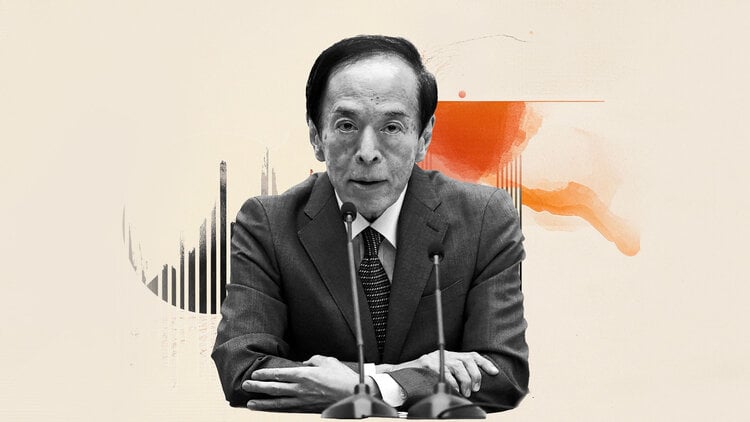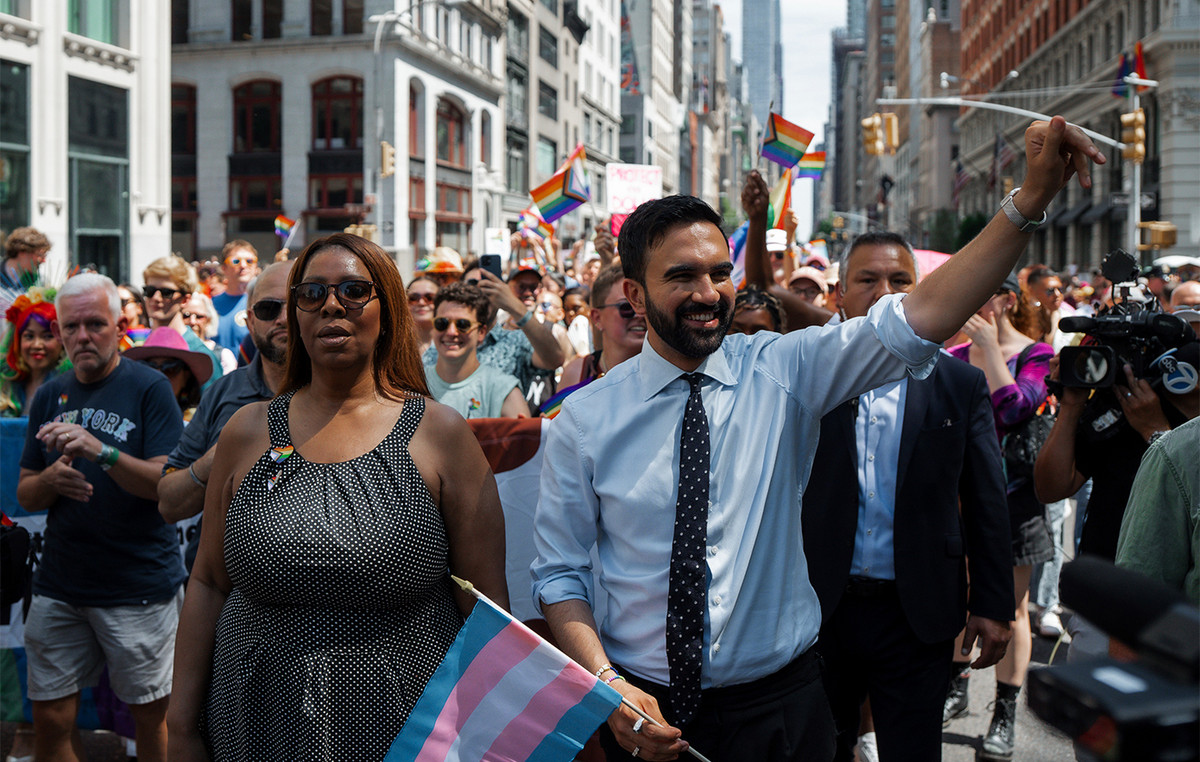“Do you agree with the proposed revision of the Constitution that is proposed to you? »This is the question that nearly 25 million Algerians are called upon to answer during a referendum on Sunday 1is November. A date that coincides with the symbolic anniversary of the start of the war for independence against the French colonial power (1954-1962).
Constitutional reform is a flagship project of President Abdelmadjid Tebboune. He was transferred to Germany on Wednesday for “in-depth medical examinations” after the news of suspected cases of Covid-19 disease in his entourage. His condition is “stable and not worrying”, according to the presidency.
In a message relayed Saturday evening by the official APS agency, the president assured that “the Algerian people will once again be at the rendezvous with history to make the expected change, Sunday 1is November, with a view to instituting a new era capable of fulfilling the aspirations of our people for a strong, modern and democratic State ”.
The 61,000 polling stations opened at 8 a.m. local (7 a.m. GMT) and will close at 7 p.m. local. The first estimates will be known shortly after.
The only stake in this election is the turnout.
“Get out of the rigid presidential regime”
This project should, according to the Head of State, “translate the desire for radical change into constitutional articles, which will constitute the foundations for the construction of the new Republic”. For the chief of staff of the army Saïd Changriha, it is about a “crucial stage in the process aiming to draw the benchmarks of the new Algerian state”. The version proposed for referendum does not differ too much from the draft submitted by the experts and the Presidency of the Republic: the idea defended by the authorities is to “get out of the rigid presidential regime of the moment”. “It is impossible for a single person to appropriate power and act as he pleases and according to his mood”, to use Abdelmadjid Tebboune’s words.
The objective would be, on paper, to move towards a semi-presidential system, a way of staving off the collapse, during the spring of 2019, of the inverted pyramid that was the ultra-presidential system of Abdelaziz Bouteflika. Will this be enough, while for the former head of government Mouloud Hamrouche, father of the reforms of the late 1980s, “the priority must go to re-establishing the legal standard, and to establishing verification and control for all function, any action and any exercise of responsibility ”? “The effort, consideration and confidence must go as a priority to replacing men with a real constitution, real institutions exercising real powers of authorization, regulation, empowerment, control and arbitration”, had- he advocated in May 2019.
Towards a “hybrid” regime?
Is this effort materialized in the proposed version which wants to mark progress in terms of freedoms by instituting in particular the declarative system for the creation of newspapers and demonstrations? For the lawyer and figure of the popular movement of February 22, Mustapha Bouchachi, the new Constitution “establishes a personal power in which the President of the Republic is like an emperor who interferes in the prerogatives of the legislative and judicial powers, in addition the levers of control that it holds through the appointments ”, regretting that, ultimately, the project does not establish a clear regime,“ neither parliamentary, nor presidential, nor semi-presidential ”.
“As formulated, the draft Constitution sets up a hybrid regime. It is a parliamentary system if the legislative elections lead to a parliamentary majority; a semi-presidential regime if no majority emerges. This will inevitably lead to uncertainties, while the country has not yet succeeded in establishing real constitutional traditions, ”writes columnist and political scientist Abed Charef. The latter adds: “With this regime, all that remains for the Head of State is to prevent the clear victory of a party in order to remain in control.”
This “hybridity” is also pointed out by the constitutionalist Fatiha Benabbou: “This is an article which seems to borrow some of its practices from the French example. This system being known, when the parliamentary majority does not coincide with the presidential majority, for the temporary presidential cancellation in favor of the Prime Minister. A scheme that does not respond to Algerian political sociology. Especially since the presumption of the existence of a parliamentary majority is unrealistic in Algeria. ”
The Constitution of post-dictatorship Portugal as inspiration
These criticisms do not seem to undermine the vision of the experts appointed by the Presidency of the Republic. For Professor Ahmed Laraba, chairman of the expert committee responsible for constitutional review, it is “a pity that the debate is biased”. “Fundamental amendments have gone unnoticed. In the version presented, there is the chapter of general principles, but also that of the organization and the separation of powers, which are no longer named. For us, it was not a question of giving powers to each one, but rather of extracting them. The current debates reduce the President of the Republic to a head of the executive, while article 143 clearly states that he is above. He is elected by universal suffrage and represents the State, not the government, ”continues the lawyer.
But for the Front des forces socialistes (FFS), “a legal order does not anticipate and does not create social order. […] He confirms it. A constitution comes to sanction, while sanctifying historical invariants, an established social order and a political balance of power structured by free democratic play. ”
Opposite, the committee of experts explains that “one of the Constitutions that interested us is that of Portugal which dates from April 24, 1976, following the revolution against fascism. Fruit of a Constituent, which today appears to us as an insurmountable horizon, it has been amended eight times. Why ? Because there is the rhythm of life, the changing world, the changing society, etc. Therefore, the law needs to be related to this real movement. Otherwise, there will be a separation between law and reality. ”
How to constitutionalize a revolution?
But beyond these debates between jurists and politicians, the issue of a new constitution is also, and above all, the extent of support for this project in a tense political context. “The real apprehension of power concerns less the outcome of the consultation than the level of participation which it can expect and the political climate that the approach of the vote will generate”, points out the editorialist Mustapha Hamouche. For him, the system responded to the popular movement in two stages: “constitutional continuity” – in opposition to a constitutive process as required by part of the opposition – which led to the election of Mr. Tebboune in December 2019 ; then a constitutional review, “and the debate is sort of… closed! “” Not only has the popular movement ended because it has succeeded. But its legitimacy is transferred to power. From now on, any question about the political nature of the state can only be of marginal origin, not popular, even suspect. The political debate is closed; long live the debate on the Constitution! »Concludes the daily columnist Freedom.
New legitimacy, new power
The word is out: legitimacy. The constitutional project, the advances on the hypersensitive question of memory with the repatriation of the skulls of Algerian resistance fighters from France, the gradual takeover of entire sections of the security mechanism are the pillars of a presidential legitimacy in the making.
As the analyst and ex-colonel of the secret services Mohamed Chafik Mesbah underlines in his book Algeria issue : “Unlike Western countries, legitimacy in Algeria is acquired after the fact; it is not a prerequisite, but a result. It is often on the initiative of extremely small groups that contradictions are resolved at a given moment. […] After a lapse of time, the company always ends up recognizing itself in the project of the small group which took the initiative to resolve the crisis and adheres to its approach. The analyst cites as an example the “group of 21” which started the revolution of November 1, 1954 against French colonialism. A date chosen, 66 years later, for the referendum for the new Constitution which should (or not) generate – and legitimize – the new power in Algiers.
Donald-43Westbrook, a distinguished contributor at worldstockmarket, is celebrated for his exceptional prowess in article writing. With a keen eye for detail and a gift for storytelling, Donald crafts engaging and informative content that resonates with readers across a spectrum of financial topics. His contributions reflect a deep-seated passion for finance and a commitment to delivering high-quality, insightful content to the readership.







